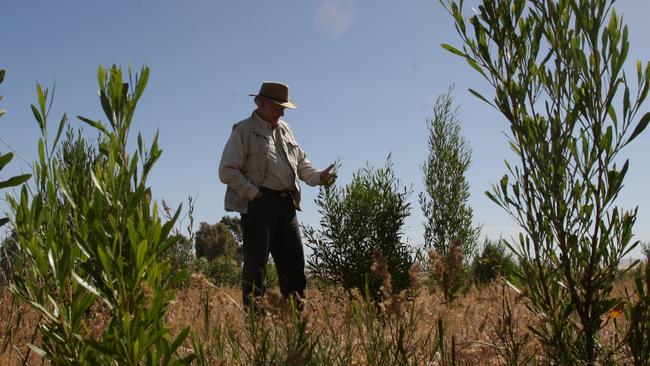The Australian carbon credit price is performing strongly
The price of Australian Carbon Credit Units is at a year high as consultation opens on new rules which would demand more information about carbon farming projects.

Business
Don't miss out on the headlines from Business. Followed categories will be added to My News.
Australian carbon credits are trading at 12 month highs as the federal government opens consultation on proposed legislative changes to boost the transparency around the reporting of carbon farming operations.
The price for Australian Carbon Credit Units (ACCUs) this week hit $37.30, up from levels below $30 this time last year.
Spot prices traded as high as $50 back in March 2022, with tight liquidity in the market to blame at the time.
The government is currently seeking feedback on a changes to the legislation governing the granting of ACCUs to carbon farming projects, responding to a recommendation of the 2022 Chubb Review into the sector.
The draft legislative changes would require the Clean Energy Regulator (CER) to publish additional ACCU scheme project data and information on its website, including improved descriptions of project activities, the types of estimation approaches used, the names of all agents involved in a project’s management, and links to any enforceable undertakings imposed on a project operator.
The provision relating to the list of activities to be undertaken would “ensure information on the abatement activities are publicly available and up-to-date as the project progresses’’.
“When registering a new project, a proponent would be expected to provide a full list of planned abatement activities that are intended to be implemented,’’ the government’s exposure draft says.
“At each stage of reporting, if planned activities change, an update would be expected to be made to the project register to reflect these changes.’’
Many large corporates are moving away from claims about carbon neutrality underpinned by the purchase of carbon offsets, with Australian companies such as Fortescue and Telstra preferring to reduce operational emissions through direct action such as investment in renewable energy.
“Fortescue will no longer buy voluntary carbon offsets unless required by law, as offsets have been shown to be troubled by extensive concerns about quality, lack of additionality and an inability to deliver real reductions in emissions,’’ the company said in its annual report.
For many large companies there will remain an obligation to buy carbon offsets under Australia’s Safeguard Mechanism, meaning a credible system of carbon offset production is crucial.
The growing demand for offsets is also driving investor activity, with farmer-led cooperative Regen Farmers Mutual this week announcing it would raise an initial $6m with a $45m follow on early next year, with the money to be used to scale the business.
The company says it has more than 200 farms involved and more than 100 landscape impact projects in the pipeline, with a spike in the number of landholders applying to join as well as projects approved in the last six months.
“We have a robust pipeline of projects that need funding early next year,’’ director Andrew Ward said.
“This capital raise is a crucial step to ensuring we can continue to deliver large-scale environmental impact while empowering our farmer members.’’
Regen Farmers Mutual said it has already completed seven landscape impact projects - four in New South Wales, one in Queensland, and two in Victoria - with another six projects funded and in progress.
“We currently have the first group within the mutual registering with the ACCU scheme, setting the standard for future deals to develop carbon projects using Regen Digital technology which helps examine, trace and prove the value of their ‘natural capital’,” Mr Ward said.
Submissions on the government’s proposed changes to the carbon farming regulations are being sought until October 7.
Originally published as The Australian carbon credit price is performing strongly



